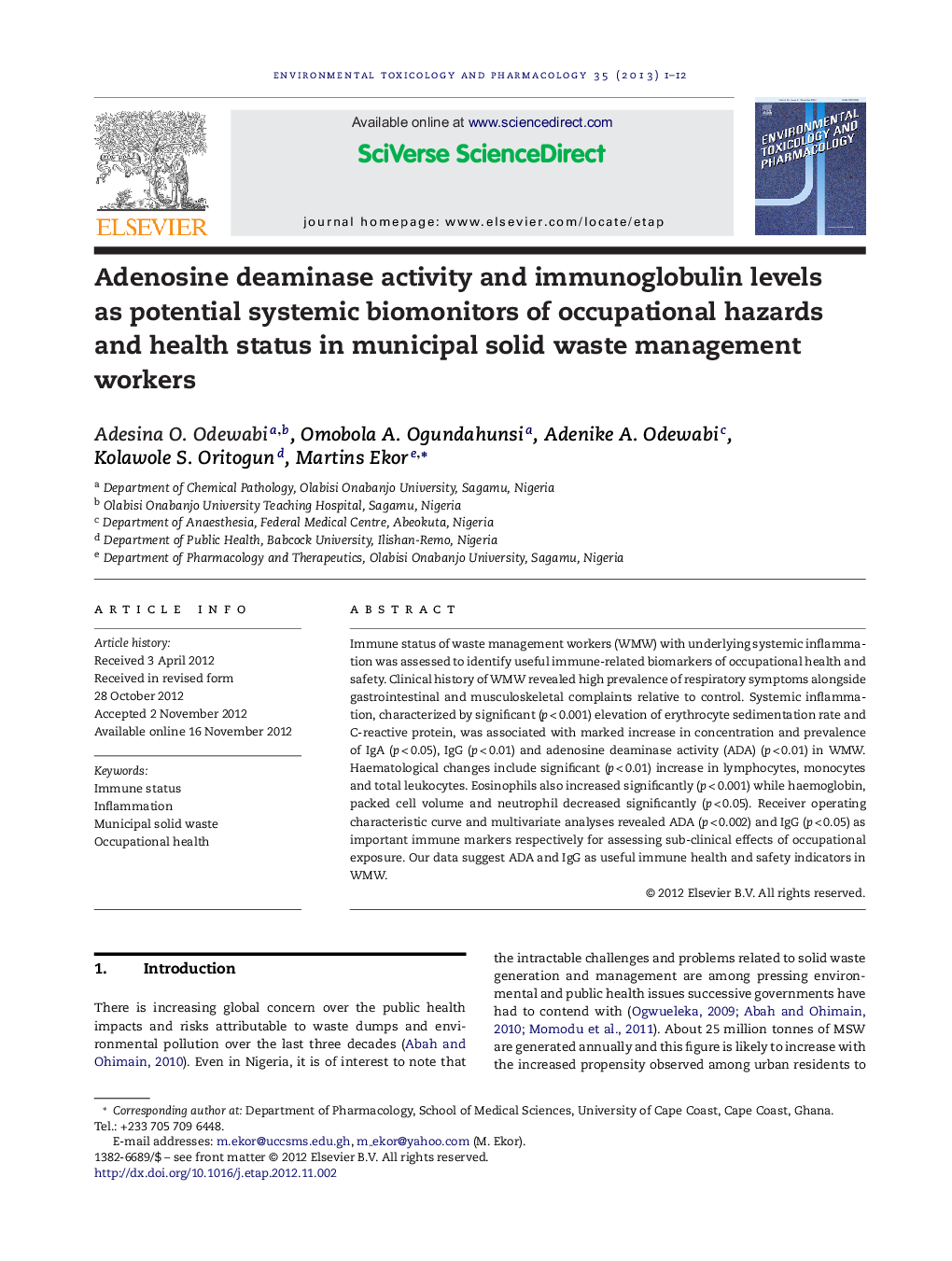| Article ID | Journal | Published Year | Pages | File Type |
|---|---|---|---|---|
| 2583314 | Environmental Toxicology and Pharmacology | 2013 | 12 Pages |
Immune status of waste management workers (WMW) with underlying systemic inflammation was assessed to identify useful immune-related biomarkers of occupational health and safety. Clinical history of WMW revealed high prevalence of respiratory symptoms alongside gastrointestinal and musculoskeletal complaints relative to control. Systemic inflammation, characterized by significant (p < 0.001) elevation of erythrocyte sedimentation rate and C-reactive protein, was associated with marked increase in concentration and prevalence of IgA (p < 0.05), IgG (p < 0.01) and adenosine deaminase activity (ADA) (p < 0.01) in WMW. Haematological changes include significant (p < 0.01) increase in lymphocytes, monocytes and total leukocytes. Eosinophils also increased significantly (p < 0.001) while haemoglobin, packed cell volume and neutrophil decreased significantly (p < 0.05). Receiver operating characteristic curve and multivariate analyses revealed ADA (p < 0.002) and IgG (p < 0.05) as important immune markers respectively for assessing sub-clinical effects of occupational exposure. Our data suggest ADA and IgG as useful immune health and safety indicators in WMW.
► Systemic biomonitors of waste management workers’ health is proposed. ► Respiratory, gastrointestinal and musculoskeletal complaints are prevalent. ► Systemic inflammation and activated immune response appear causally related. ► Adenosine deaminase activity and IgG are sensitive surveillance health indicators.
